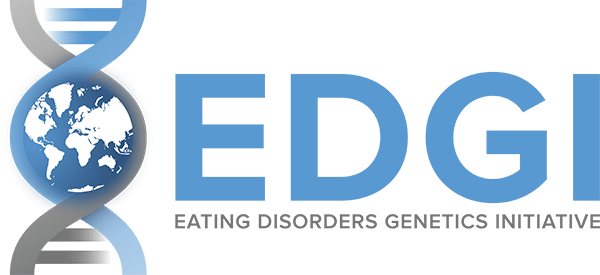About EDGI
The Eating Disorders Genetics Initiative (EDGI) is the world’s largest ever genetic investigation of eating disorders ever performed.
The Australian arm of EDGI aims to identify the hundreds of genes that influence a person’s risk of developing the complex, devastating illnesses of anorexia nervosa, bulimia nervosa and binge-eating disorder, to improve treatment, and ultimately, save lives.
Australia aims to recruit more than 3,500 Australians who have been diagnosed with an eating disorder, including a control group (people without eating disorders), by June 30, 2023.
This ground-breaking research should identify hundreds of genes that influence a person’s risk of developing an eating disorder.
Identification of the genes that predispose individuals to eating disorders will revolutionise future research into causes, treatment, and prevention of the illness.
We are recruiting volunteers who:
- Are living in Australia and aged 13 years and over. Children aged 13 to 17 years wishing to volunteer for the study must be supervised by a guardian.
- Currently have, or at any point in their lives, experienced anorexia nervosa, bulimia nervosa or binge eating disorder.
How to participate
Study participation involves providing informed consent and completing a short 15 minute online survey. After completing this core survey module, eligible participants will be asked to donate a saliva sample. Researchers will send a saliva collection kit together with a pre-paid return envelope to selected participants. EDGI researchers will extract DNA from saliva samples to identify specific genes associated with eating disorders.
Study participants will also be given the option to complete other short modules on related experiences including mood, treatment and personality.
Study participation is strictly confidential. All patient information provided will be maintained in accordance with the Commonwealth Privacy Act (1988) and National Health and Medical Research Council (NHMRC) Guidelines.

